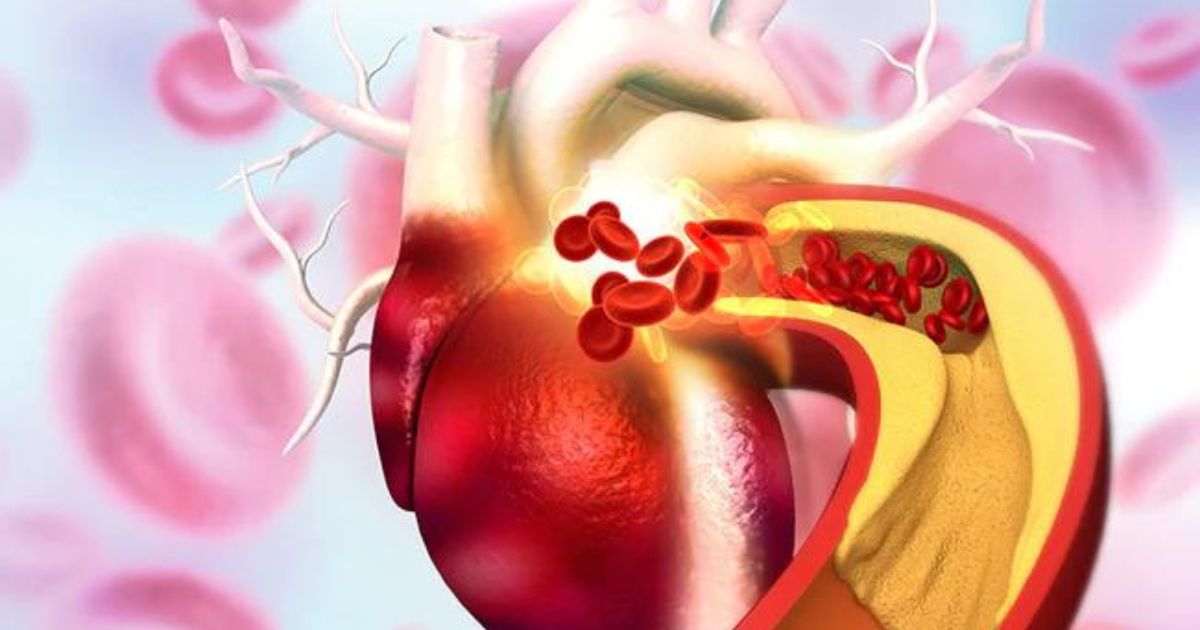In today’s fast-paced world, stress has become an almost unavoidable part of life. From demanding work schedules to personal challenges, it’s something most people face regularly. Uncontrolled stress impacts cholesterol levels, and here’s what you need to know.
While we often associate high cholesterol with factors like diet, exercise, genetics, and certain medical conditions, there’s a lesser-known connection between stress and cholesterol that deserves our attention. In this article, we’ll explore how stress can influence your cholesterol levels and what you can do to manage it effectively.
How Stress Impacts Cholesterol: An Overlooked Link
High cholesterol is a widespread health concern affecting millions worldwide. Yet, not many are aware of the intriguing connection between stress and cholesterol levels. Nutritionist Anjali Mukerjee, in a recent Instagram video, sheds light on this link, emphasizing its significance in understanding heart health.
Research findings support the idea that stress plays a role in elevating cholesterol levels. When we grapple with day-to-day stressors and harbor feelings of anger and hostility, our cholesterol levels may rise.
The key to this connection lies in the hormone cortisol, which tends to surge during stressful periods, subsequently increasing cholesterol levels in the body.
Mukerjee goes on to explain that stress doesn’t merely affect LDL cholesterol (commonly known as the bad cholesterol) but also has an impact on triglycerides, a type of blood fat. This dual influence on lipid profiles makes stress management a critical aspect of heart health.
The Cortisol Effect on Cholesterol
Cortisol, often referred to as the “stress hormone,” plays a crucial role in the body’s response to stress. When we encounter stressful situations, cortisol levels spike, initiating a cascade of physiological responses.
One of these responses involves the liver producing more cholesterol, which is then released into the bloodstream. While cholesterol itself is essential for various bodily functions, excess levels can lead to plaque buildup in the arteries, increasing the risk of heart disease.
Therefore, when cortisol levels remain consistently high due to chronic stress, it can result in persistently elevated cholesterol levels, potentially putting your heart health at risky.
Triglycerides, another type of blood lipid, are also influenced by stress. When you’re under stress, your body often craves high-calorie, sugary foods. Consuming such foods can lead to an increase in triglyceride levels, which contributes to elevated heart disease risk.
Additionally, stress can disrupt sleep patterns and lead to poor dietary choices, further exacerbating the triglyceride problem. It’s a double whammy effect on your lipid profile that underscores the importance of managing stress for overall heart health.
One surprising aspect of stress’s impact on cholesterol levels is its potential to affect the accuracy of cholesterol tests. Mukerjee advises individuals to maintain a calm demeanor the day before getting their lipid profiles tested. Stress on the day before testing can skew the results of the blood test taken the following day.
Therefore, if you’re keen on obtaining accurate cholesterol measurements, managing stress should be a priority. This approach not only provides a clearer picture of your heart health but also ensures that any necessary interventions are based on reliable data.
Stress Management for Heart Health
Given the undeniable connection between stress and cholesterol, adopting effective stress management strategies becomes paramount. Here are some practical tips to help you manage stress and promote heart health:
- Regular Exercise: Physical activity is a powerful stress reliever. Incorporate regular exercise into your routine to help reduce cortisol levels and improve overall well-being.
- Mindfulness and Meditation: Practices like mindfulness meditation can help calm the mind and reduce stress. Dedicate time each day to mindful relaxation techniques.
- Healthy Diet: A balanced diet rich in fruits, vegetables, whole grains, and lean proteins can support both your mental and physical health.
- Adequate Sleep: Prioritize sleep and establish a consistent sleep schedule to ensure quality rest, which is essential for stress management.
- Seek Support: Don’t hesitate to reach out to friends, family, or mental health professionals for support during stressful times.
- Limit Stressors: Identify sources of stress in your life and take steps to minimize or eliminate them when possible.
- Relaxation Techniques: Explore relaxation techniques such as deep breathing exercises, yoga, or progressive muscle relaxation to help reduce stress levels.
In conclusion, while high cholesterol remains a significant concern for heart health, it’s crucial not to overlook the role of stress in its development and management.
By understanding the stress-cholesterol connection and adopting effective stress management strategies, individuals can take proactive steps to safeguard their heart health and overall well-being.
Through lifestyle changes and stress reduction, you can positively influence your cholesterol levels and reduce your risk of heart disease, ensuring a healthier and happier life.


















